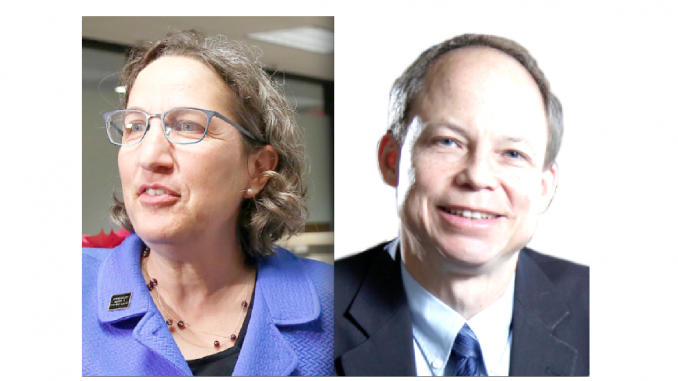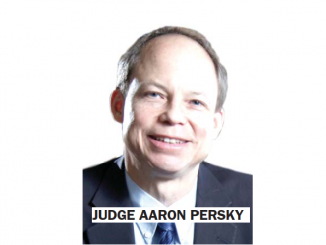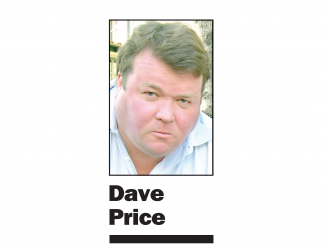
Three justices in the state’s 6th District Court of Appeal will decide whether the recall Judge Aaron Persky stays on the June 5 ballot after hearing oral arguments from attorneys for Persky, the recall campaign and the Secretary of State this morning (March 20).
Administrative Justice Franklin Elia, Associate Justice Adrienne Grover and former Justice Wendy Clark Duffy presided over the court hearing in San Jose in response to an appeal made by Persky regarding the measure’s existence on the upcoming ballot.
Persky’s seat is set to be voted on this summer after Stanford law professor Michele Dauber led a campaign for his recall, gaining enough verified signatures to move the petition to the Santa Clara County Board of Supervisors, who on Feb. 6 approved adding the recall to the June ballot.
Persky’s reign as a Santa Clara County Superior Court judge became controversial after what many perceived to be a light six-month sentence that he handed down to former Stanford University swimmer Brock Turner, who was convicted of sexual assault.
Elia said the decision has been prioritized and will be moved along as quickly as possible since the final printing date the county is allowed for their June ballot is April 3.
Persky’s attorney Elizabeth Pipkin began by arguing that the Secretary of State should be handling Persky’s recall because he is a state official according to an article of the state’s Constitution.
Pipkin said she believes that though Persky was elected as a Superior Court judge by the county specifically, his power resides in the state and they should be the one to regulate the aspects of the recall, such as petition signature verification processes and monitoring how those signatures are collected.
Elia said he believed that the California Elections Code prevented specific counties from adding their own provisions that could leave a loophole for corruption, which Pipkin suggested may have happened with the Santa Clara County Registrar of Voters, saying that, “local registrars being subject to political pressures.”
Grover asked Pipkin if she thought, then, that any registrar like that of Santa Clara County’s could not be trusted to verify the legitimacy of a petition. Pipkin said she could not declare that.
Elia asked Pipkin if she had evidence that the recall campaign was possibly corrupted, to which she said no.
Pipkin also mentioned an article of the state Constitution that states those facing a recall campaign that are not recalled should be reimbursed, as well as Senate Bill 117, which provides “extra protection that matters to the judge being recalled.”
Lastly, Pipkin said that to her knowledge, a minimum of five registered voters have tried to rescind their signatures from the petition.
The recall petition, Elia noted, had garnered more than 94,000 signatures.
Padilla’s attorney Aaron Jones said that it would be a “substantial change in law and in historical background” to have the Secretary of State run potential recalls for each trial judge in California, a number Grover estimated to be over 1,500.
Persky was not present, but Dauber commented after the hearing, saying that Persky’s lawsuit was “frivolous and a waste of taxpayer money” as well as “an attempt to put himself above the law and avoid accountability.”
Dauber also alleged that the law firm handling Persky’s case, McManis Faulkner, donated more than $250,000 to the judge personally and that the attorney he had hired was an operative of President Donald Trump’s campaign.
“On June 5, 2018, Judge Persky will be on the ballot and he will be voted out of office,” Dauber said.
The appellate court’s decision will be posted on the court’s
website as soon as it is public.
— By Bay City News



